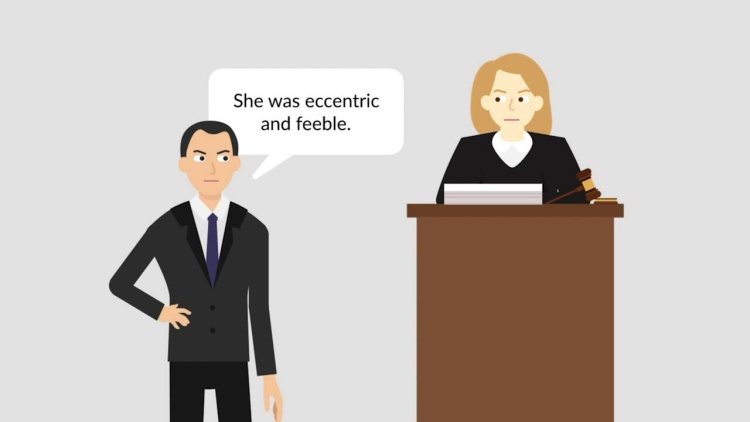Wilson v. Lane
Supreme Court of Georgia
614 S.E.2d 88, 279 Ga. 492 (2005)

- Written by Christine Raino, JD
Facts
Katherine Lane (propounder), as executrix of Jewel Jones Greer’s will, offered her will for probate. The will distributed the estate in equal shares to 16 blood relatives and Lane, Greer’s caregiver before her death. Floyd Wilson (caveator) filed a caveat claiming that Greer lacked testamentary capacity. At a trial in Jasper County Superior Court, the evidence included testimony that Greer was eccentric and feeble, but still of sound mind at the time of executing her will. The evidence also showed, however, that Greer may have been suffering from Alzheimer’s or senile dementia and that a petition for guardianship of Greer was filed by Lane a few months after the will was executed. The petition claimed that Greer was no longer capable of managing her own affairs and her incapacity was caused by Alzheimer’s-related dementia. An expert, whose report indicated that Greer may have early to mid-stage dementia related to Alzheimer’s disease, admitted that he had only reviewed her medical records and had not actually examined her. Testimony also indicated that the petition was filed by Lane in response to concerns raised by the Department of Family and Children’s Services, to enable Greer to continue living in her own home. The jury found that Greer lacked testamentary capacity, but the trial court reversed the jury’s verdict and granted Lane’s motion for judgment notwithstanding the verdict.
Rule of Law
Issue
Holding and Reasoning (Fletcher, C.J.)
Dissent (Carley, J.)
What to do next…
Here's why 911,000 law students have relied on our case briefs:
- Written by law professors and practitioners, not other law students. 47,100 briefs, keyed to 997 casebooks. Top-notch customer support.
- The right amount of information, includes the facts, issues, rule of law, holding and reasoning, and any concurrences and dissents.
- Access in your classes, works on your mobile and tablet. Massive library of related video lessons and high quality multiple-choice questions.
- Easy to use, uniform format for every case brief. Written in plain English, not in legalese. Our briefs summarize and simplify; they don’t just repeat the court’s language.





